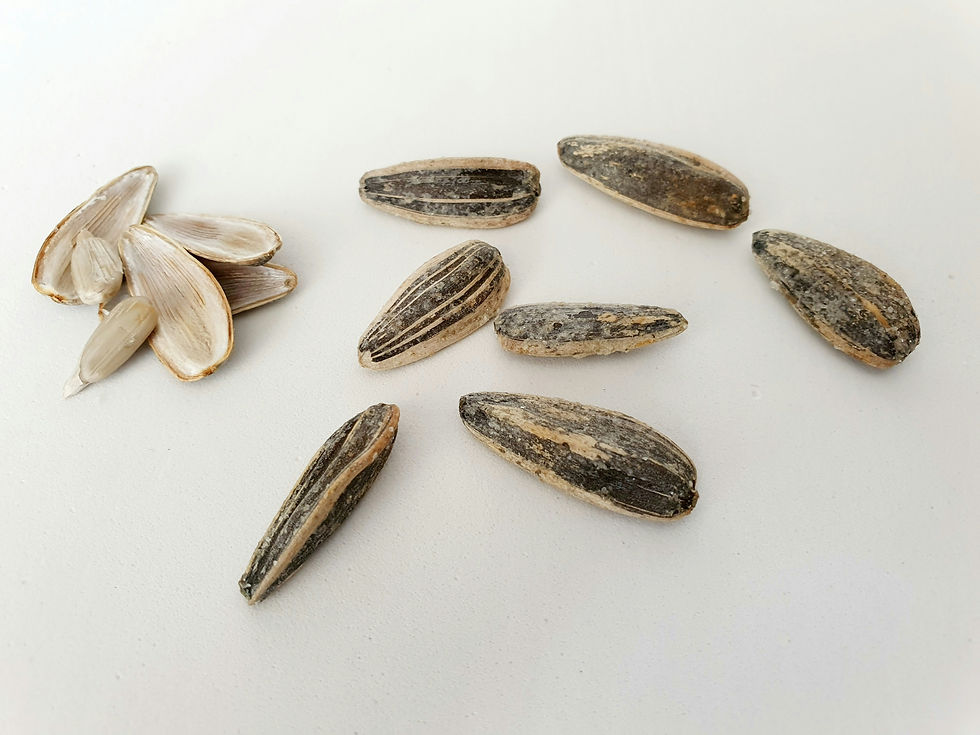Thiamine and Acid Reflux: What’s the Connection?
- volcanowishes
- May 13, 2025
- 4 min read

When you live with acid reflux, you're constantly making adjustments—swapping out foods, eating earlier dinners, avoiding late-night snacks, and maybe even sleeping with your head elevated. But sometimes, even with all the effort, relief still feels out of reach.
If that’s your story, you might be missing one important piece: nutrient absorption. Specifically, your body’s ability to absorb and use thiamine, also known as vitamin B1.
It’s a quiet but crucial factor that can make a big difference in how you feel—especially when your digestive system is already under stress.
What Is Thiamine, and Why Is It Important?
Thiamine is a water-soluble B-vitamin that your body doesn’t store, which means you need to get it from food every day. It's essential for turning carbohydrates into energy and supports:
A well-functioning nervous system
Proper muscle contractions
Smooth digestion
Think of thiamine as a helper that keeps the body’s “wiring” in good shape. It’s especially important for the nerves and muscles that keep your digestive system moving—literally. Without enough of it, digestion can slow down or become erratic, which may lead to or worsen acid reflux symptoms.
How Acid Reflux Can Lead to Thiamine Deficiency
It might seem strange that reflux could affect your vitamin levels, but here’s how it happens:
Many people with acid reflux take medications like proton pump inhibitors (PPIs) or H2 blockers, which lower stomach acid. While this can reduce symptoms, it also makes it harder for the body to absorb key nutrients, including thiamine.
Stomach acid isn’t just a digestive aid—it helps break down food and unlock the nutrients inside. When acid levels are too low for too long, absorption suffers.
Additionally, people with chronic reflux often deal with inflammation in the esophagus or stomach lining, which can further interfere with digestion and nutrient uptake. So even if you're eating a decent diet, your body might not be making the most of it.
Signs You Might Be Low in Thiamine
Because thiamine plays a role in both energy and digestion, a deficiency can show up in ways that mimic or amplify reflux symptoms. Some signs to watch for:
Constant fatigue, even after a full night’s sleep
Digestive discomfort, bloating, or a feeling of fullness
Tingling or numbness in the hands and feet
Irritability or mood swings
Brain fog or forgetfulness
Loss of appetite
These symptoms can easily be brushed off as stress or poor sleep, but if they persist—especially alongside reflux—they may be worth exploring with your doctor.
A Real-World Example
Let’s say you’ve been managing reflux for years. You take a daily PPI, eat bland foods, avoid late-night meals, and still feel drained, bloated, and foggy. You start to wonder if your body is just worn out from the reflux itself. The truth might be that your body is running low on the nutrients it needs to heal and function.
When your cells don’t have enough thiamine, they can’t efficiently turn food into usable energy. That means every system slows down—including digestion—and your reflux symptoms may actually intensify, even though you're doing everything "right."
How to Replenish Thiamine
Thiamine-Rich Foods to Include (Reflux-Friendly Options):
Sunflower seeds – A great snack to keep on hand
Lentils and black beans – Mild and hearty additions to soups or salads
Green peas – Easy to add to grain bowls or steamed sides
Oats – A gentle breakfast choice that won’t trigger reflux
Brown rice and quinoa – Whole grains that are easy on the stomach
Fortified cereals – Just make sure they don’t have added sugar or trigger ingredients
If dietary changes aren’t enough—or if you’re on long-term medication—a vitamin B1 supplement may be beneficial. Your healthcare provider can check your levels and recommend the right dosage. In some cases, a B-complex vitamin may be more effective, since B vitamins often work best as a team.
Supporting Your Body from the Inside Out
Addressing acid reflux isn’t just about eliminating triggers—it’s about rebuilding your system so it can function smoothly and heal. That means making sure your body has what it needs on a deeper level. Thiamine might not be the first thing that comes to mind, but it’s a quiet powerhouse that supports the digestive muscles and nerves you rely on every day.
If you’ve been stuck in a cycle of acid blockers and symptom control with no real progress, looking at your nutrient levels could be a gentle and empowering next step.
The Bottom Line
Thiamine won’t cure acid reflux, but it may help support the systems that prevent reflux in the first place. From improving nerve function in the digestive tract to helping your body turn food into energy, this unassuming vitamin plays a much bigger role than most people realize.
If you’ve been doing all the right things and still not feeling better, it may be time to dig a little deeper—because sometimes, healing isn’t just about what you take away, but what your body’s been missing all along.






Comments